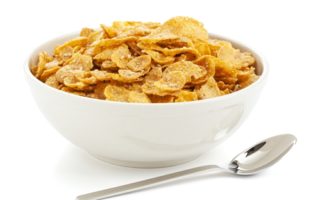
How food manufactures process their products matters to you as a healthy consumer. There are certain processes, like fermentation or freezing, that do not generally change the nutritional value of food. Then there are other processed foods that can be detrimental for the body. It's important to know how processed foods affect your body and what items you might want to cut out of your daily diet.
What are processed foods?
Obviously, fresh peaches offer more nutritious benefits than canned ones. Both might be healthier than a pre-made peach cobbler dessert. There are different levels of processed foods, ranging from completely unprocessed to minimally processed to ultra-processed foods. It is the latter option you might want to avoid, according to The Washington Post.
In her book, "Gut and Psychology Syndrome," Dr. Natasha Campbell-McBride wrote that processing food changes its chemical and biological structure. The more food is processed, the less nutrient-dense and more chemically altered it becomes. While you might not notice the lack of nutrients, processed food loses some of its color and taste. Some food manufacturers compensate for this loss by adding in dyes, additives, preservatives and flavor enhancers.
"The vast majority of processed foods are carbohydrates."
What processed foods should you avoid?
When perusing the supermarket shelves, you will notice that the vast majority of processed foods are carbohydrates. Some of these items include breads, crackers, breakfast cereals, pastas, chips and pre-cooked, frozen meals, preserved fruits and vegetables, chocolate and select condiments. Even if certain foods claim to be healthy, such as certain breakfast cereals, many are loaded with excessive sugar. Many manufactures allege their product will provide you with your daily fiber needs, but many times this is the wrong type of beneficial fiber, especially for GAPS Diet participants.
Normally, the carbohydrates you eat are slowly absorbed as glucose. Yet, due to the chemical and structural alteration of processed foods, these carbohydrates absorb very quickly in the body, which spikes your blood glucose levels. A rapid increase in blood glucose levels is known as hyperglycemia.
This puts your body in a state of shock, leading it to pump out lots of insulin. Following this overproduction of insulin, you experience a low blood level of glucose known as hypoglycemia. You might have noticed this happening to you if you have eaten a sugary breakfast cereal or pastry in the morning, only to get hungry again within an hour or so. This is part of the reason Campbell-McBride generally recommends cutting out all processed carbohydrates while on the GAPS Diet.
For additional information about the GAPS Diet and how to get started, you can consult with a Certified GAPS Practitioner and visit our website today!

